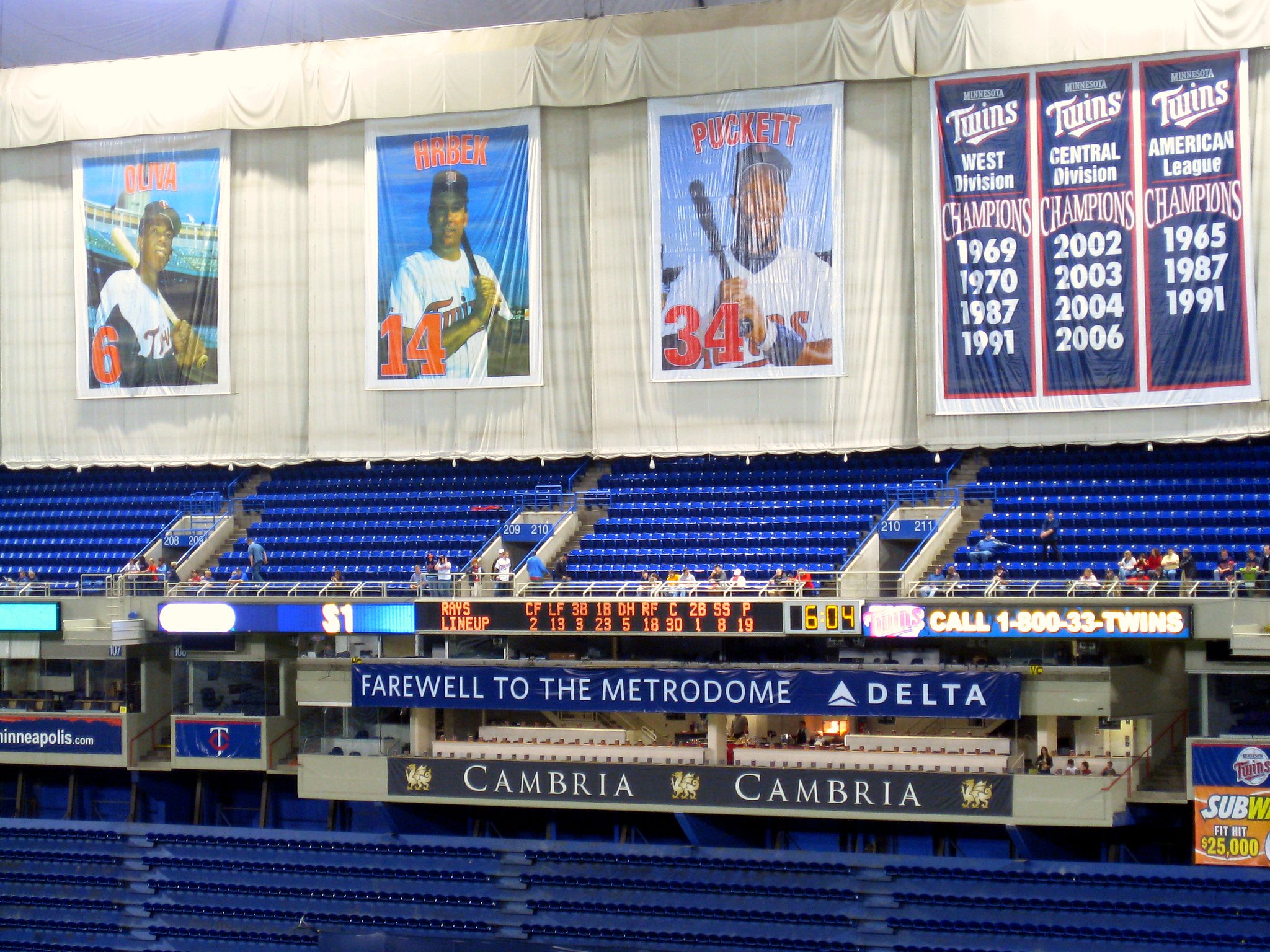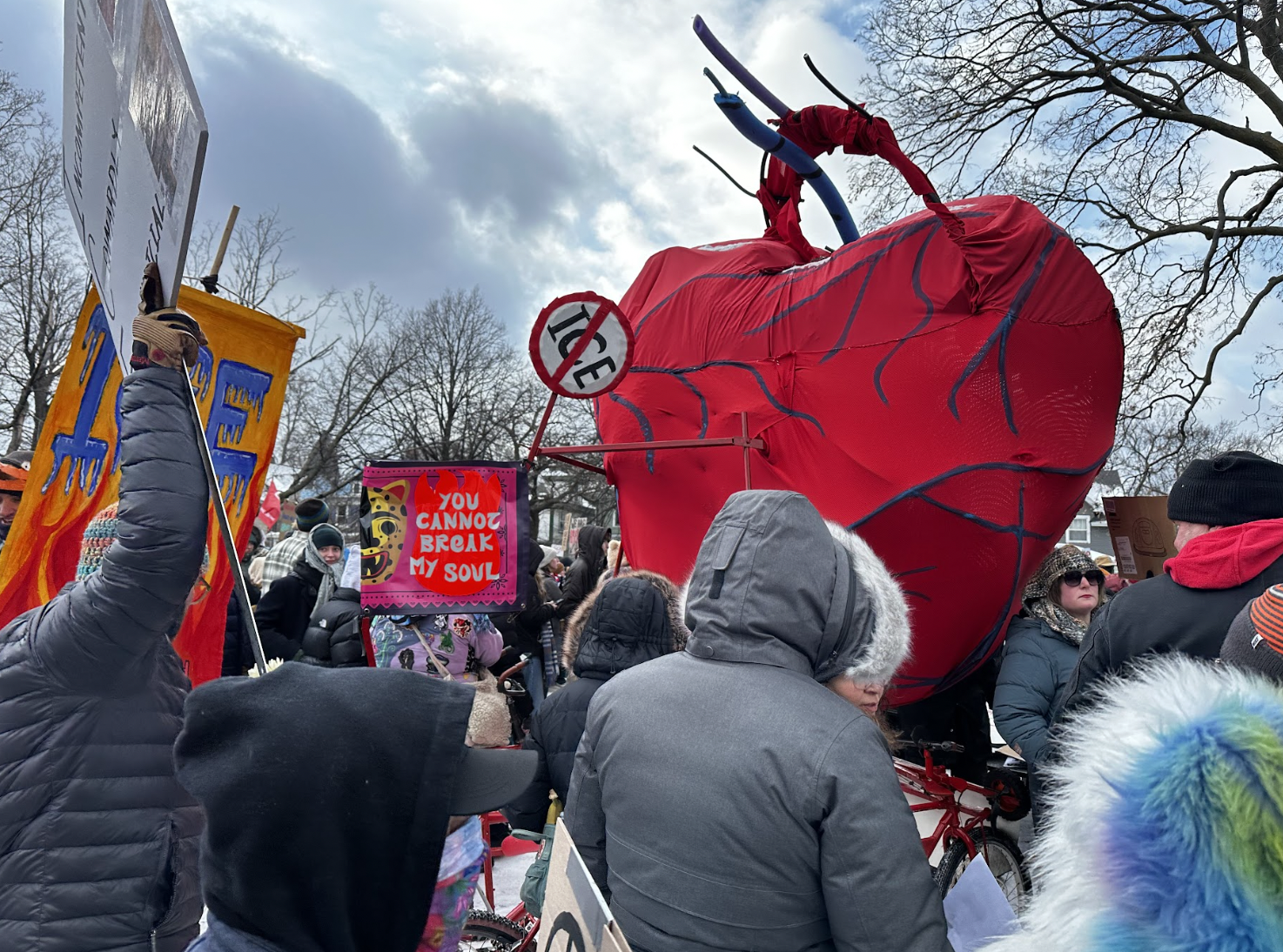Thirty years ago today, the Minnesota Twins defeated the Atlanta Braves in Game Seven of the World Series—a series so great that it’s broadly considered one of the best of all time. ESPN, Bleacher Report, noted baseball writer Joe Posnanski—all have ranked the best World Series over the years. In each case, the Twins’ 1991 victory ended up in second place.
To a Twins fan like myself, not being No. 1 can feel like a slight.
It’s much easier to agree with people like Steve Rushin, a graduate of John F. Kennedy High School in Bloomington and a longtime Sports Illustrated writer, who was tasked with writing the magazine’s story of the series.
“The truth is inelastic when it comes to the 88th World Series,” Rushin wrote. “It is impossible to stretch. It isn’t necessary to appraise the nine days just past from some distant horizon of historical perspective. Let us call this Series what it is, now, while its seven games still ring in our ears: the greatest that was ever played.”
In 2016, Rushin penned a reflection: “Twenty-five years ago I wrote in SI that it was ‘the greatest that was ever played,’ and that honorific still applies.”
Of course, it’s easier for a Twins fan like myself to agree with him when there aren’t all that many World Series wins to care about.
“I think there is something unique about Minnesota,” says Jason Brauer, design partner at SotaStick, “a lifestyle brand for Minnesota sports nostalgia.”
“I have family that live in Wisconsin, I have family that live in California, and I have a brother that lives in England—he’s surrounded by football hooligans that are obsessed,” Brauer continues. “You get those different angles of how people digest their favorite sports teams, championships are expected in some areas.”
In Minnesota, after decades of lowering expectations, Brauer says, “it’s more about remembering those moments because the championships haven’t always been there. It’s been a way to stay engaged, to love your team.”
Stew Thornley, an official scorer for the Twins and author of the recently revised and updated Baseball in Minnesota: The Definitive History among other local baseball books, agrees. “To be in a place where there’s only been three World Series over 60 years, you don’t take that for granted,” he says.
On the other end of the spectrum, there’s the team that’s caused its share of problems for the Twins across the last 30 years: the New York Yankees. Marty Appel, a respected Yankee historian and author of multiple books on the Bronx Bombers, concedes that the 27 rings the franchise proudly promotes make it harder to find a consensus favorite Series.
“1927, 1939, 1961, and 1998 stand out in a debate of which team was the best,” Appel says, “and many fans attach their own attraction to different teams for different reasons.”
Those “different reasons”? They don’t really come into play for the Twins.
Thornley remembers the joy around the Twins making—and falling one Sandy Koufax shutout short of winning—the 1965 World Series, just as he remembers the excitement of the team hoisting the trophy in 1987 and 1991. But because ’65 went to the Los Angeles Dodgers and on a pure baseball level ‘91 was a greater thrill than ’87, the overwhelming majority of Twins fans place 1991 at the top without question.
Author Tim Wendel takes that belief even further: His 2014 book is the confidently titled Down to the Last Pitch: How the 1991 Minnesota Twins and the Atlanta Braves Gave us the Best World Series of All Time.
Wendel, who grew up in upstate New York and spent time covering baseball in the Bay Area, was covering his first World Series in 1991. When touring with his book, Wendel says he “got a little bit of pushback” about his strong opinion. And he got it “from the traditional power bases,” cities like New York, Boston, and to a lesser extent, Los Angeles.
“It was like, ‘How can you say this is the best World Series of all time?’ You know, almost kind of, ‘How dare you?'” he recalls.
On each of the lists the ’91 Twins finished second in, a Boston Red Sox series takes the No. 1 slot. Granted, the Red Sox lost both of them, but two top finishes for the 1975 World Series (that’s the one that Robin Williams didn’t go to in Good Will Hunting) where they lost to the Hall of Famer-laden Big Red Machine out of Cincinnati, and one for 1986 (that’s the one where Bill Buckner let the ball through his legs) where they lost to the New York Mets, help to prove Wendel’s point.
The Red Sox and the Mets have had their struggles over the years, but they are franchises whose failures often get more coverage than (non-Chicago Cubs) midwestern teams’ successes, so putting them at the top of the list feels like just another case of keeping the Twins down.
In a 2003 ESPN article, former Pioneer Press sports writer Jim Caple wrote, “Had the 1991 World Series been played in New York or Boston or down the block from Doris Kearns Goodwin, it would be regarded as the best series of all time, hands down. Instead, Ken Burns devoted nine episodes to his baseball documentary and never mentioned Morris' 10-inning masterpiece.”
In Ken Burns’s Baseball, the 1975 Series gets a huge chunk of the running time. Meanwhile, 1991 gets less than a minute. And while the clips playing during the narration plays show the Twins succeeding, the docuseries never explicitly states that the Twins won the title.
(In fairness, the PBS series was released in 1994, and focusing on something so recent may have presented a logistical and narrative challenge. Still, it pains me to see what is essentially the sport’s definitive, mainstream, historical document giving so little time to the Twins’ crowning achievement.)
Minnesotans are always carrying the burden of their anonymity. In sports, this leads to a tendency to define Minnesota franchises in relation to the big market teams. Hold Steady frontman Craig Finn’s 2010 Twins love-letter, “Don’t Call Them Twinkies,” touches on this theme. “We don’t buy our titles,” Finn sings, “but we’ve still won two World Series.”
When that’s a part of a fan’s outlook, it invites in plenty more disappointment and frustration. It doesn’t just hurt that the Twins have been dispatched by the much more successful Yankees in six of their nine playoff appearances since 1991, it hurts that Minnesotans’ embrace of their underdog status hasn’t held up against a franchise synonymous with big payrolls. With 1991, the franchise got its chance to be recognized as the best, and the same feeling of bitterness arises when teams that simply need to exist to get attention get more credit.
Perhaps that's a reason to love the 1991 World Series even more. Trophies are cool, but the only thing Minnesotans like better is a chip on their shoulder.







